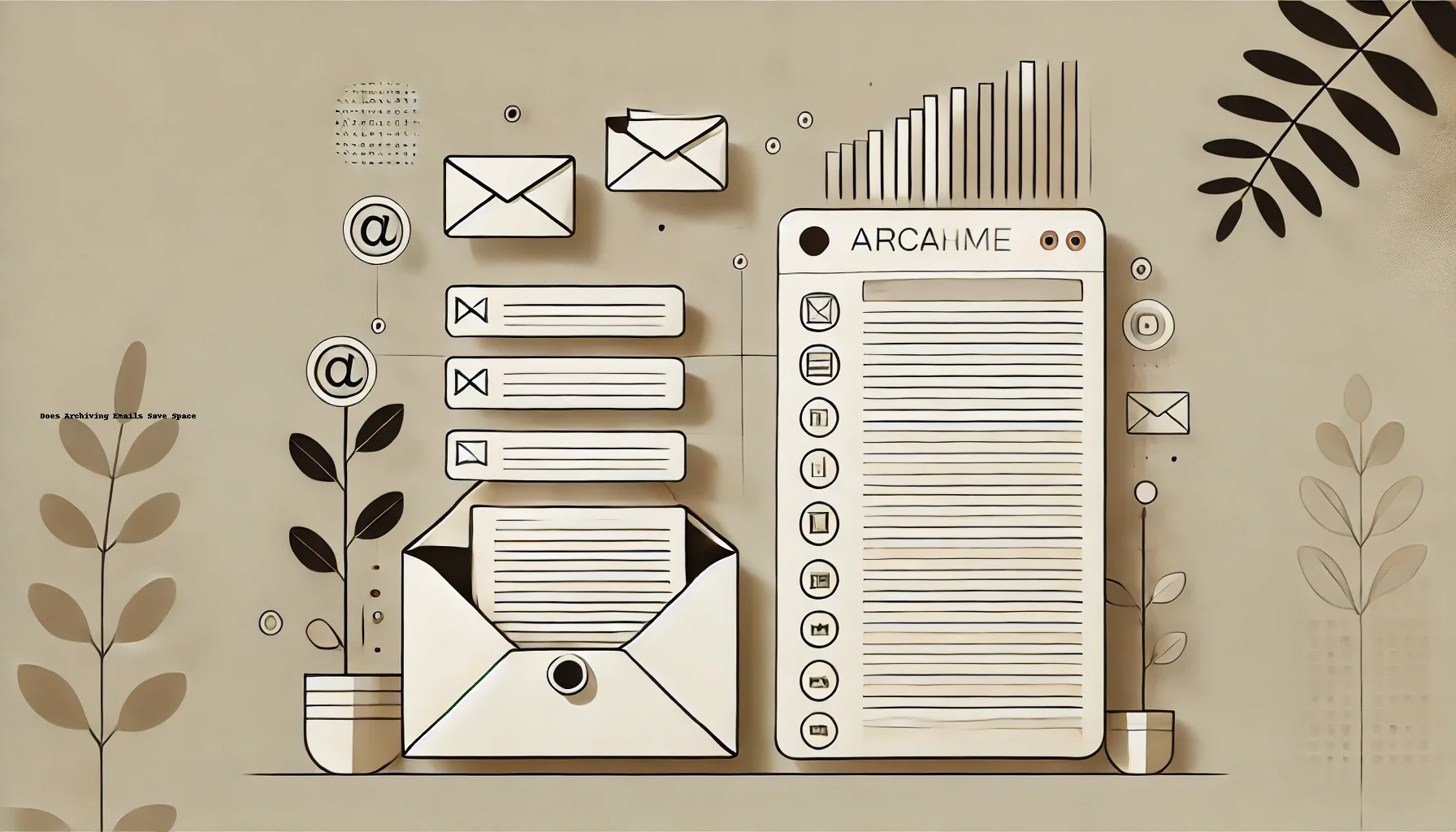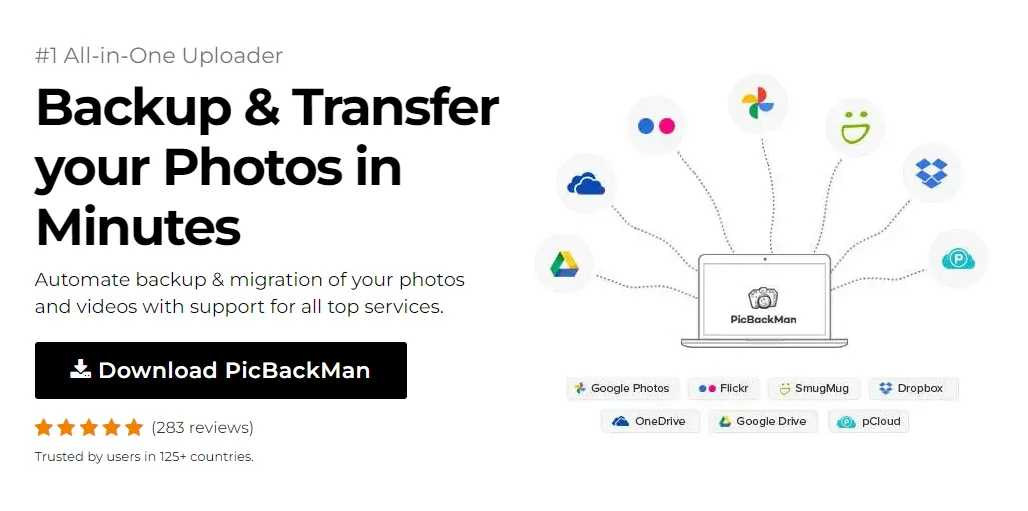
Why is it the #1 bulk uploader?
- Insanely fast!
- Maintains folder structure.
- 100% automated upload.
- Supports RAW files.
- Privacy default.
How can you get started?
Download PicBackMan and start free, then upgrade to annual or lifetime plan as per your needs. Join 100,000+ users who trust PicBackMan for keeping their precious memories safe in multiple online accounts.
“Your pictures are scattered. PicBackMan helps you bring order to your digital memories.”
Does Archiving Emails Save Space


Managing email storage is a common struggle in today's digital age. With countless messages, attachments, and notifications filling our inboxes daily, finding ways to stay organized is essential. One popular feature often used to tackle this issue is email archiving. But does archiving emails actually save space, or is it more about organization? Let's dive into the details.
Understanding Email Archiving
Archiving emails is like putting old documents into a filing cabinet. You're moving them out of sight without throwing them away. This helps keep your inbox tidy while ensuring you can retrieve the emails if needed later.
-
What Does Archiving Mean?
Archiving moves emails from your main inbox to a dedicated folder or storage area. The emails are still accessible but no longer clutter your primary view. -
Archiving vs. Deleting
Archiving and deleting are often confused, but they serve different purposes.- Archiving: Keeps the email intact but moves it to another location.
- Deleting: Removes the email completely, often freeing up storage space.
-
Why Use Archiving?
It's ideal for keeping a record of important messages without overwhelming your inbox.
The Space-Saving Myth: Does Archiving Emails Save Space?
The short answer? Not always. Archiving's primary purpose is organization, not storage reduction. Here's how it works on popular platforms:
-
How Archiving Works
Archiving typically moves an email from your inbox to a separate folder, but it doesn't reduce the size of the email or its attachments. These emails still occupy storage space. -
When Archiving Saves Space
In some cases, archiving may save space:- If your email service compresses archived emails.
- If you move archived emails to an external storage solution.
- When using email clients like Outlook, which allows local archiving, freeing up server space.
-
When It Doesn't Save Space
Platforms like Gmail retain archived emails in the “All Mail” folder, meaning no storage is saved unless you delete attachments or the email itself.
Benefits of Archiving Beyond Storage
Even if archiving doesn't save much space, it offers other valuable benefits:
- Better Organization: Keeps your inbox clutter-free and reduces stress.
- Easy Retrieval: Archived emails are searchable and accessible when needed.
- Protection from Accidental Deletion: Important emails remain safe but out of sight.
Tips to Optimize Email Storage
Managing your email effectively requires a mix of strategies. Here are some tips to stay on top of your inbox:
- Know When to Archive or Delete: Archive emails you may need in the future and delete those that are irrelevant or outdated.
- Organize with Labels or Folders: Categorize archived emails for easy access.
- Backup Emails: Use cloud storage or external drives to offload old emails and free up space.
- Delete Large Attachments: Review emails with large attachments and remove unnecessary files.
Comparison: Archiving vs. Deleting Emails
Here's a quick comparison of archiving and deleting to help you decide when to use each:
| Feature | Archiving | Deleting |
|---|---|---|
| Storage Impact | Retains storage usage | Frees up storage |
| Accessibility | Easily retrievable | Permanently removed |
| Organization Benefits | Keeps inbox clean | Reduces clutter |
| Risk of Data Loss | Low | High |
| Best Use Case | Important but inactive emails | Unnecessary or spam emails |
Quick Tip to ensure your videos never go missing
Videos are precious memories and all of us never want to ever lose them to hard disk crashes or missing drives. PicBackMan is the easiest and simplest way to keep your videos safely backed up in one or more online accounts. Simply Download PicBackMan (it's free!), register your account, connect to your online store and tell PicBackMan where your videos are - PicBackMan does the rest, automatically. It bulk uploads all videos and keeps looking for new ones and uploads those too. You don't have to ever touch it.
FAQs
Do archived emails take up storage space?
Yes, archived emails continue to occupy storage space in your email account. Archiving moves emails out of your inbox for better organization but doesn't remove them from the server. Therefore, they still count toward your storage quota.
Is it better to archive or delete emails?
The choice between archiving and deleting depends on your needs:
-
Archive: Use this for emails you might need later. Archiving keeps emails accessible without cluttering your inbox.
-
Delete: Opt for this when you're certain an email is unnecessary. Deleting frees up storage space and removes the email permanently after a certain period.
Does archiving emails reduce mailbox size?
Archiving emails can reduce the size of your active mailbox, leading to improved performance and easier navigation. However, the archived emails still occupy storage space on the server. In some email clients like Outlook, archiving can move emails to a local file, potentially freeing up server space.
What's the point of archiving emails?
Archiving emails helps in:
-
Organization: Keeps your inbox clutter-free.
-
Accessibility: Allows you to retrieve important emails when needed.
-
Data Preservation: Ensures important information is saved without being deleted.
Is it OK to archive all emails?
While you can archive all emails, it's more effective to archive only those you might need in the future. Archiving unnecessary emails can lead to storage issues and make it harder to find important messages. Regularly deleting unneeded emails is recommended to manage storage efficiently.
Will deleting emails free up storage?
Yes, deleting emails removes them from your account, freeing up storage space. This is particularly useful if you're nearing your storage limit. Remember to empty the trash or deleted items folder to permanently free up space.
Conclusion
So, does archiving emails save space? While it can in certain scenarios, it often doesn't reduce your storage usage, especially on platforms like Gmail. However, archiving remains a powerful tool for organizing your inbox, protecting important data, and reducing visual clutter. Combining archiving with smart storage practices like deleting unimportant emails and backing up old messages can help you manage your email more efficiently.






